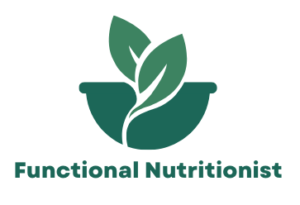When you do not meet the nutritional needs that your body needs, you are at greater risk of malnutrition. Unfortunately, many people still do not understand the characteristics of malnutrition that they are experiencing. Malnutrition is not a condition that is only related to pregnant women, babies, and children.
This condition can also occur in adults, even those who have a healthy diet.
You may already recognize the most common signs and symptoms of malnutrition according to functional nutritionist, including dizziness and fatigue, weakness, and lethargy. However, there are a number of other signs of malnutrition that you may experience. Unfortunately, you may not be aware of this.

- Dry and scaly skin
In addition to aging and weather factors, dry and scaly skin problems can be a sign that your body is lacking in omega-3 fatty acids. Omega-3 fatty acids help maintain healthy skin lipid tissue, which is a layer of oil that repels germs and harmful toxins and maintains the skin’s natural moisture.
A study in the Journal of Clinical Medicine even showed that omega-3 intake can help protect the skin against the risk of nonmelanoma skin cancer. Of course, you can avoid it by eating more foods high in omega-3, such as oily fish (tuna, salmon, mackerel, sardines), walnuts, and chia seeds.
- Pale skin
Pale and dull skin can be a sign that your body is lacking iron. Iron deficiency causes the size of red blood cells to shrink because they do not contain much hemoglobin, a protein made up of iron.
The decrease in the size of red blood cells is seen in the skin tone that becomes pale, especially in the layers of the eyelids and the inner walls of the cheeks. Fortunately, to meet these nutritional needs, you can consume sources of iron such as lentils, beef, and iron-fortified cereals.
- Tingling
Almost everyone has experienced a sudden tickling and stabbing sensation in the hands or feet or also called tingling. Tingling or paresthesia is usually caused by poor blood flow, such as when we cross our legs or sit cross-legged for too long. However, this uncomfortable sensation can also occur due to a lack of vitamin B intake, especially vitamin B6, vitamin B9, and vitamin B12. You can increase your intake of vitamin B complex by adding whole wheat products, spinach, nuts, and eggs to your daily diet.
- Dry and chapped lips
If your lips appear very dry, chapped, sore, and have cracks in the corners of your lips, this condition can be a sign of malnutrition, especially of vitamin B2 (riboflavin).
Symptoms of this nutritional deficiency will begin to appear once the reserves are very low. Vitamin B2 deficiency which causes dry and chapped lips is usually accompanied by a swollen tongue and mouth. If left untreated, this condition can trigger nerve damage. To avoid this, you can add more riboflavin to your diet by consuming almonds, salmon, broccoli, cheddar cheese, and eggs.
- Acne
Generally, acne occurs when bacteria thrive in pores that are clogged with oil, dirt, and dead skin cells. However, it turns out that symptoms of malnutrition, especially omega-3, can also make acne prone which is more difficult to remove. Omega-3 fatty acids basically have strong anti-inflammatory properties.
If the body lacks omega-3 intake, you may experience inflammation more often, one of the symptoms of which is acne. In addition, the benefits of omega-3 fatty acids in protecting lipid tissue in the skin also play a role in preventing acne from getting worse.
- Wounds that don’t heal
Wounds that don’t heal can be a sign of malnutrition, especially a lack of protein. Protein is essential for building and repairing body tissue. You can get protein from animal sources, such as red meat, eggs, milk, and processed foods.
However, you need to balance it with vegetable protein from nuts and seeds. Eating lots of fruits high in vitamin C, such as oranges, guava, papaya, and mango can also help speed up wound healing. An article in the British Journal of Community Nursing shows that vitamin C plays a role in the stages of wound healing, especially in collagen synthesis.
- Brittle nails
When your body starts to run out of iron and B-complex vitamins, especially vitamin B7 (biotin) and vitamin B2 (riboflavin), this can cause brittle nails. Biotin functions to maintain nail growth so that nails grow unevenly. Some grow quickly, while others are short and break easily. Biotin deficiency also increases your risk of fungal infections that cause nails to look yellow.
Meanwhile, iron deficiency causes nails to grow concave outwards like the surface of a spoon. Vitamin B2 deficiency can also change the color of the skin to brown.
- Thinning hair
In general, hair loss is 50 to 100 strands per day. However, excessive hair thinning can be a sign that your body is malnourished. Lack of vitamin C and protein can cause thinning due to brittle hair, breakage, split ends, and easy hair loss.
This is because vitamin C and protein help produce collagen, one of the important nutrients in hair growth. Biotin also plays a role in maintaining healthy hair. Therefore, biotin deficiency can also cause hair loss.
- Graying faster
In addition to changing the structure of the hair, symptoms of certain nutritional deficiencies are also seen from gray hair that grows faster. Gray hair is generally related to aging, but copper deficiency can also cause it.
The mineral copper helps the body produce melanin, one of the pigments that gives your hair its color. In addition to copper, a number of other nutrients also affect this condition. Low levels of iron, vitamin B12, HDL cholesterol can be associated with faster graying. To help meet your daily needs, you can add foods that are sources of copper minerals, such as beef liver, green vegetables, and nuts.
- Frequent muscle cramps
If you continue to experience muscle stiffness or muscle cramps, even when actively moving, this could indicate that your body is lacking magnesium. Signs of a body lacking in this nutritional intake include facial twitching, lack of sleep, and chronic pain.
Magnesium deficiency can occur if you consume too many sodas, high-sugar snacks, and caffeinated drinks. Carbonated drinks that contain phosphate will bind magnesium in the digestive tract. Meanwhile, sugar and caffeine cause the kidneys to excrete a lot of magnesium through urine. You can get magnesium by eating bananas, almonds, and green vegetables.
In addition to these signs of malnutrition, there are a number of other signs and symptoms if your body is not getting enough of certain nutrients. Therefore, always consult a doctor or nutritionist to find out your nutritional needs and the right method to meet them.








